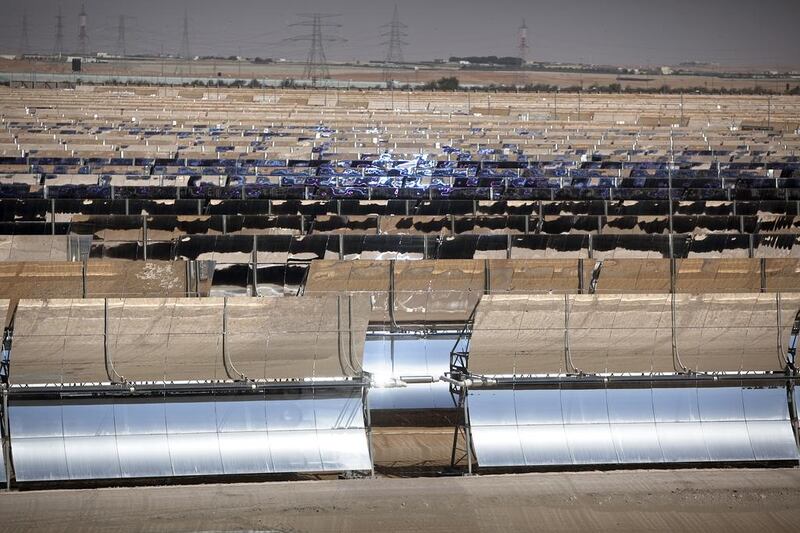For several years now, GCC countries have played an increasingly important role in global efforts to advance sustainable development and renewable energy. They have done so by investing in major solar and wind projects worldwide and by adopting innovative and increasingly cost-competitive technologies in their domestic markets. This week’s World Green Economy Summit in Dubai will offer them a platform to drive the sustainable agenda forward.
While energy remains the driver of the modern era – fuelling economic growth and human development – a raft of social, environmental and economic challenges have emerged over the past decades due to the dominant use of fossil fuel. Governments worldwide now recognise the need to decarbonise the energy sector to reduce air pollution, improve public health, boost energy security, enhance energy access and mitigate climate change.
Thanks to this recognition and a convergence of other factors, renewable energy has begun to take centre stage.
Previously, costs associated with adopting renewable energy solutions were seen as a barrier for their large-scale implementation, but this is no longer the case. Renewables are now more cost-competitive than fossil fuel in many parts of the world. Prices for solar PV modules and wind turbines have fallen by 80 per cent and 40 per cent, respectively, since 2009. By 2025, average electricity costs could decrease by 59 per cent for solar PV, 35 per cent for offshore wind, 26 per cent for onshore wind and 43 per cent for concentrated solar power. These declines, coupled with greater investments in the sector, have resulted in more renewable energy being added to the global power generation mix than any other source. In 2015, renewable generation capacity increased by 8.3 per cent, the highest annual growth rate on record.
With some of the lowest solar and wind power prices in the world, Gulf countries are set to capitalise on their proven renewable resources for power generation and water desalination. A bid for the expansion of Mohammed bin Rashid Al Maktoum Solar Park in January resulted in a record-breaking price of 2.99 US cents/kWh – compared with 7 to 19 cents/kWh for fossil power. And this is before factoring in the substantial externalised costs associated with fossil fuels, including climate change and air pollution.
GCC governments are taking note as well. As costs decline and policy frameworks develop, there has been an upswing in project implementation not only in the UAE, but also across the region.
Countries that use a substantial share of their hydrocarbon for power generation have identified solar power as one of the quickest and least risky investments to meet the rapid growth in demand for electricity, and even boost export capacity and revenues.
The renewable energy industry also offers more than environmental and resource-saving benefits. The GCC has seen more domestic manufacturing of polysilicon, modules, mounting structures, inverters and other components. If the regional demand for these products continues to increase, GCC-based companies will benefit.
Furthermore, local commercial banks that have financed the region’s large-scale renewable energy projects could capitalise on expanding renewable energy investment opportunities as the market grows.
Growth in the industry also creates jobs – a key priority for GCC governments to ensure economic growth and security, particularly amid recently declining oil and gas prices.
The International Renewable Energy Agency estimated that the region’s renewable energy plans would create an average of 140,000 direct jobs annually, directly benefiting GCC economies.
We have reached the tipping point where the case for renewable energy is strong – not only environmentally and socially, but also economically. But in order to limit global warming to the extent necessary, deployment must accelerate quickly and more must be done to enable this.
First, governments should strive to make energy markets more efficient. Improved policies would level the playing field between renewable energy and other energy sources and optimise energy pricing.
Second, while the renewable energy transition is well under way in the power sector, we must focus more on end-use sectors, such as transport, heating and cooling.
If these areas are addressed, we will see a dramatic increase in renewables in the coming years, to everyone’s benefit.
Adnan Amin is director general of the International Renewable Energy Agency





